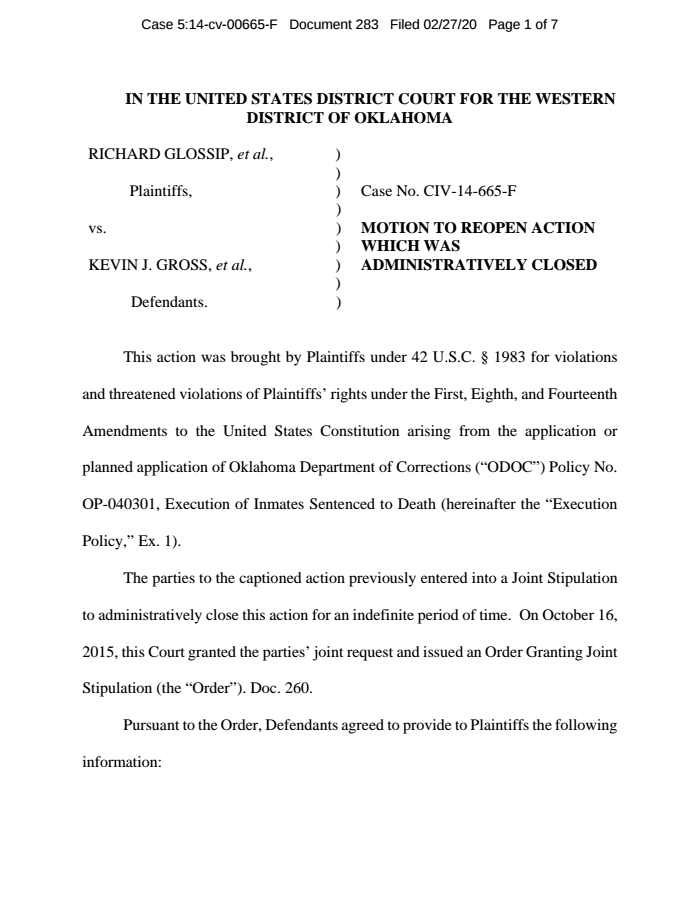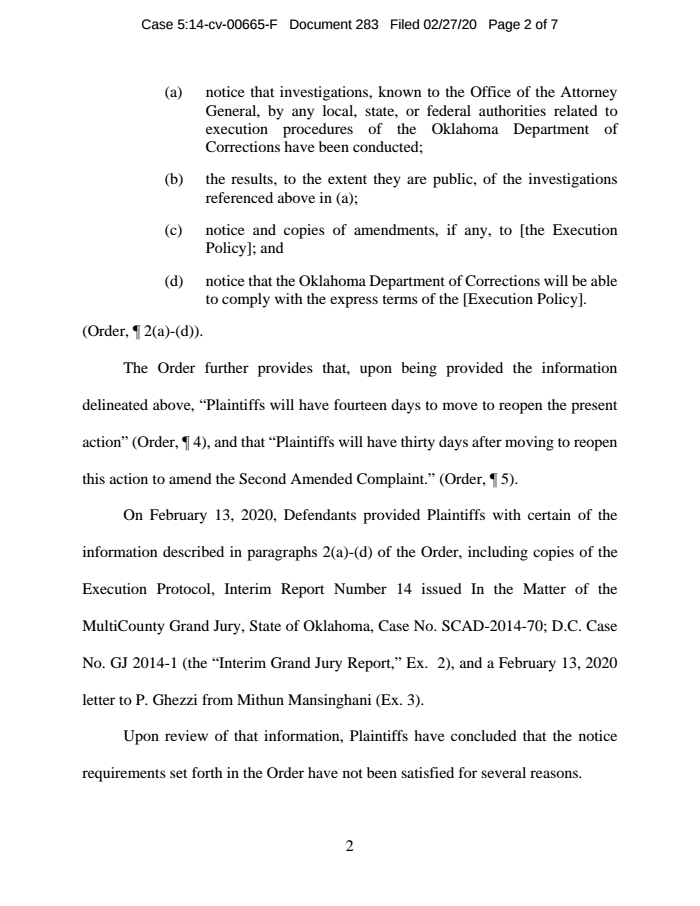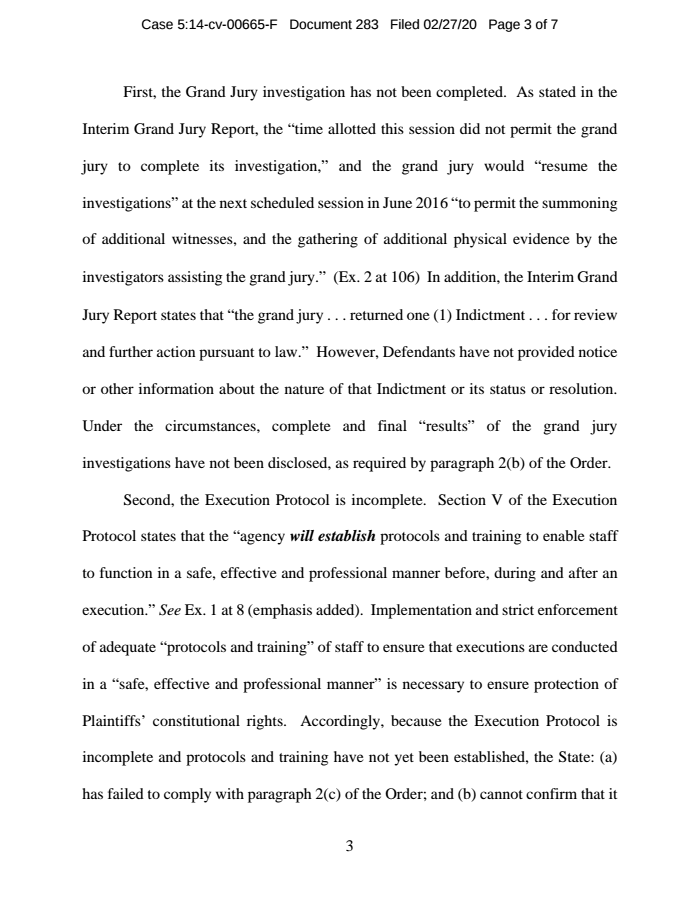Oklahoma inmates seek to re-open suit on state's lethal injection protocol
Feb. 27 (UPI) -- A group of Oklahoma death row inmates on Thursday filed a motion to reopen their lawsuit against the state's lethal injection protocol, weeks after officials announced a plan to resume executions.
The group challenged the state's plan, saying its new protocol is incomplete. The motion also alleges that a grand jury investigation into the state's methods of execution haven't been completed.
Those shortcomings, the court document said, threaten the inmates' First, Eighth and 14th Amendment rights.
The state announced Feb. 13 that it plans to resume executions, nearly six years after the use of an incorrect drug led to the botched execution of a convicted murderer.
RELATED Colorado House votes to abolish death penalty; Gov. Polis to sign
Gov. Kevin Stitt said that after mulling the option of using nitrogen gas to cary out executions, the state has now found a "reliable supply of drugs" to resume lethal injections.
Oklahoma's lethal injection protocol came under scrutiny in 2014 when Clayton Lockett died of a heart attack amid complications during his execution.
Autopsy reports released a year later indicated Oklahoma corrections officials used the wrong drug -- potassium acetate instead of potassium chloride -- during the process. Lockett complained of a burning sensation and attempted to raise his head and speak after doctors declared he was unconscious.
Gov. Kevin Stitt said that after mulling the option of using nitrogen gas to cary out executions, the state has now found a "reliable supply of drugs" to resume lethal injections.
Oklahoma's lethal injection protocol came under scrutiny in 2014 when Clayton Lockett died of a heart attack amid complications during his execution.
Autopsy reports released a year later indicated Oklahoma corrections officials used the wrong drug -- potassium acetate instead of potassium chloride -- during the process. Lockett complained of a burning sensation and attempted to raise his head and speak after doctors declared he was unconscious.
RELATED Supreme Court denies new hearing in Arizona death penalty case
The same incorrect drug was delivered to corrections officials for use in the planned 2015 execution of Richard Glossip. Former Gov. Mary Ballin called off Glossip's execution with a last-minute, indefinite stay after she learned of the discrepancy.
Oklahoma has carried out only one other execution since Lockett's, that of Charles Warner in January 2015. He received a nine-month stay due to the previous botched lethal injection.
Since then, the state had an unofficial moratorium on executions as it attempted to secure a supply of lethal injection drugs. Oklahoma uses a three-drug cocktail of midazolam, vecuronium bromide and potassium chloride.
RELATED Texas appeals court lifts stay for death row inmate
Executions in the United States have undergone changes in recent years after states started running out of the essential lethal injection drug pentobarbital. The European Union in 2011 voted to prohibit the sale of the drug and seven other barbiturates to the United States for use in torture or executions. Other pharmaceutical companies have refused to sell drugs for lethal injection purposes outright, and some will only sell if their name is kept confidential.
Now states are being forced to use new drug cocktails, scramble to restock their stores of drugs and review their lethal injection policies.
In 2018, Oklahoma's attorney general's office announced it would use nitrogen gas inhalation as its primary method of execution. Officials, though, had difficulty finding a manufacturer to sell a method for administering the gas for an execution. Additionally, state law says nitrogen hypoxia may be used for executions only if drugs for lethal injections are unavailable.
RELATED Alabama death row inmate of 30 years dies of natural causes
Forty-seven people currently sit on death row in Oklahoma, including 30 who have exhausted the appeals process and are eligible for execution dates.
Twenty-one inmates were named in the lawsuit when it was filed in 2014: James Coddington, Benjamin Cole, Carlos Cuesta-Rodriguez, Nicholas Davis, Richard Fairchild, John Grant, Wendell Grissom, Marlon Harmon, Raymond Johnson, Emmanuel Littlejohn, James Pavatt, Kendrick Simpson, Kevin Underwood, Brenda Andrew, Glossip, Shelton Jackson, Phillip Hancock, Julius Jones, Alfred Mitchell and Termane Wood. Warner, who was executed in 2015, also was named.



No comments:
Post a Comment